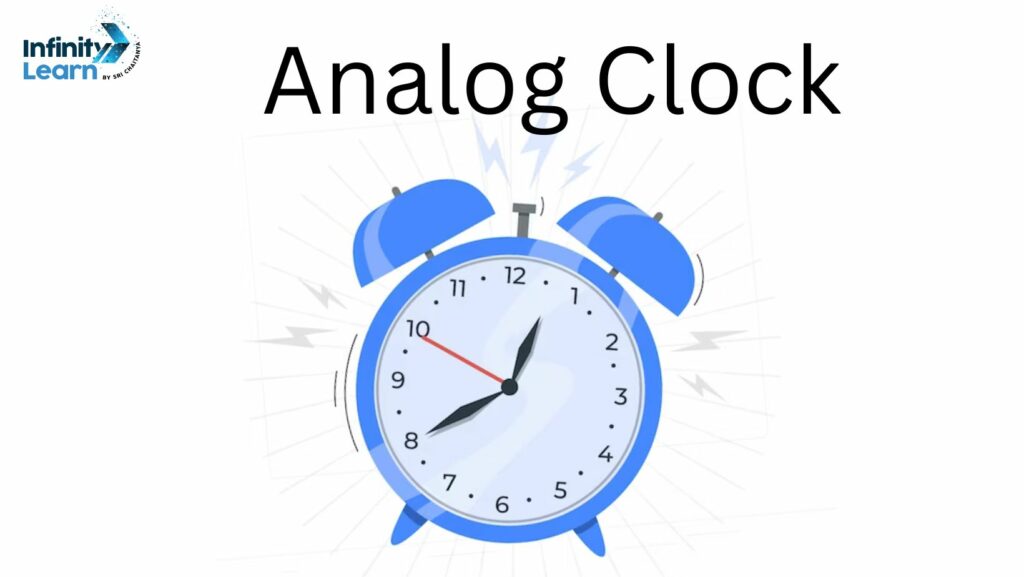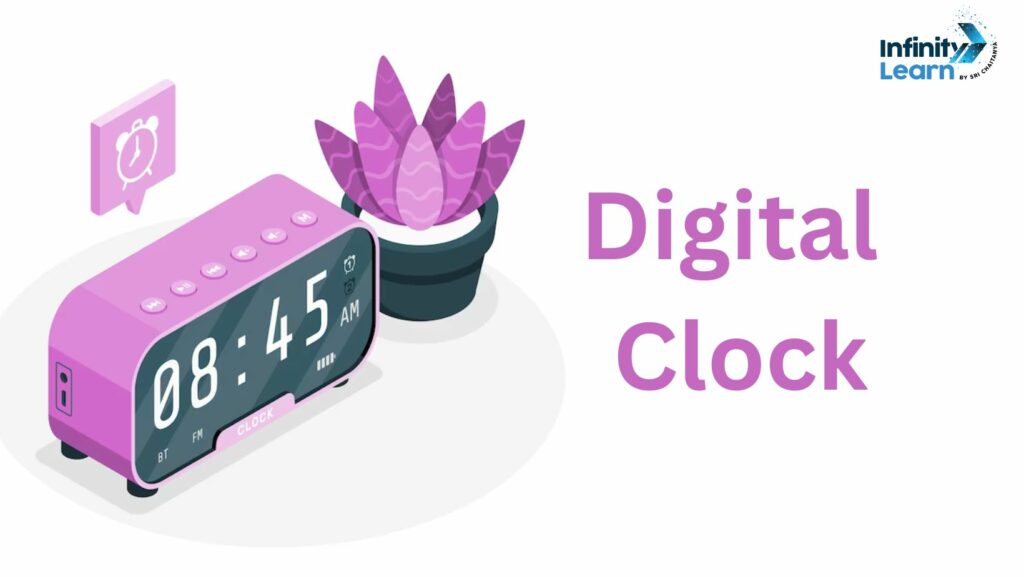Table of Contents
Clocks have been part of human history for centuries, serving as essential tools to measure time and keep track of schedules.
From sundials to water clocks, and eventually mechanical and electronic clocks, the evolution of clocks has been a fascinating journey that has led to the creation of different types of clocks, such as analog, digital, and decorative clocks.
In this article, we will delve into the history, science, and unique features of clocks, providing insights that will reveal why these timepieces remain essential in our daily lives.
Also Check: Science About Nitrogen
The Evolution of Clocks
From ancient sun-dials to modern-day smartwatches, the history of clocks is a fascinating one. Timekeeping devices have come a long way since the first water clocks and sundials used by ancient civilizations.
The oldest known clock, called the Astrarium, was built by Giovanni de’Dondi in the 14th century. It was an intricate design of brass and wood, with multiple dials displaying the phases of the moon, the positions of the planets, and the time of day.
During the Renaissance period, clock-making became an art in itself, with elaborate designs and decorations adorning clocks owned only by the wealthy elite. The first mechanical clocks were invented at this time, using simple weights and pendulums to keep time.
Also check: Mercury Element
Advancements in both mechanics and electronics led to the development of clocks that could keep time even more accurately, such as quartz clocks.
In the 1930s, mechanical clocks were largely replaced by electronic clocks, which used high-frequency vibrations of quartz crystals to regulate time. This technology eventually paved the way for digital and atomic clocks that we use today.
| Important Events in Clock History | Year |
| The first pendulum clock is invented by Christian Huygens | 1656 |
| The first quartz clock is developed by Warren Marrison | 1927 |
| The first atomic clock is built by National Physics Laboratory | 1955 |
| Apple introduces the first smartwatch, the Apple Watch | 2015 |
Despite the countless advancements in technology, the basic concept of clocks remains the same: to measure the passage of time. As we continue to evolve and progress, who knows what the future holds for timekeeping devices?
Also Check: Stegosaurus
Analog Clocks
Analog clocks are timepieces that display the time through hour and minute hands tracking the rotation of a circular face. They are often referred to as traditional or classic clocks and offer a charming aesthetic to any decor.

Analog clocks rely on the continuous motion of a clock mechanism to maintain time accuracy, but they may require winding or adjustment from time to time.
There are several types of analog clocks available in the market, including wall clocks, pendulum clocks, and grandfather clocks. Wall clocks are the most common and practical type, typically hung in a room to keep track of time.
Pendulum clocks, on the other hand, have a pendulum swinging back and forth to regulate timekeeping with greater precision. Grandfather clocks are larger and are usually passed down through generations as family heirlooms, valued for their ornate carvings and decor.
Analog clocks have a rich history, dating back to the invention of the earliest clock technologies. They continue to be popular today as a timeless feature of interior design.
Also Check: Speed and Velocity
Digital Clocks
Digital clocks have become ubiquitous in modern society, with their easy-to-read numerical displays finding their way into homes, offices, and public spaces worldwide. Unlike analog clocks, digital clocks show time using digits, making them a popular choice for those who prefer a more modern, minimalist style.

Digital clocks offer a wide range of features, including alarm functions, temperature readings, and countdown timers. Some digital clocks even come equipped with voice-activated commands, allowing for hands-free operation.
Additionally, digital clocks can be found in various formats, such as wall-mounted, desk-sized, or handheld, making them versatile and easy to integrate into any space.
While digital clocks have only been around for a few decades, they have quickly established themselves as a reliable and convenient timekeeping solution for people worldwide.
Their widespread use makes them a familiar sight, but lesser-known facts about digital clocks include that they are highly accurate timekeepers, drawing on science and technology to ensure precision.
The Science Behind Clocks
Clocks are marvels of precision engineering that keep us on schedule throughout our daily lives. Despite the wide array of clock types available, they all rely on the same fundamental principles and mechanisms to achieve accurate timekeeping. Here’s a closer look at the fascinating science behind clocks:
Oscillation
The key to a clock’s accuracy lies in its ability to maintain a consistent oscillation, which is the repeating cycle of movement that powers the clock’s mechanisms. In analog clocks, the oscillation is provided by a pendulum that swings back and forth at a fixed rate. In digital clocks, it’s generated by a quartz crystal that vibrates at a precise frequency when an electric current is applied.
Precision Engineering
Clocks must be precisely engineered to ensure that all components work together in harmony. Even the slightest deviation from the correct measurements can cause a clock to become inaccurate or malfunction altogether. This is why clockmakers use high-quality materials and take great care to construct their clocks with meticulous attention to detail.
Quartz Crystals
Quartz crystals are the workhorses of modern clocks, providing reliable and accurate timekeeping without the need for mechanical parts. When an electric current is applied to a quartz crystal, it vibrates at a constant frequency that serves as a reliable timekeeping reference. Digital clocks use these vibrations to measure time intervals with incredible accuracy, often to within a fraction of a second.
Other Factors
While the principles of oscillation, precision engineering, and quartz crystals are the backbone of clock science, there are other factors that can affect a clock’s accuracy. Temperature, humidity, and even the Earth’s gravitational pull can all have an impact on a clock’s performance, which is why regular maintenance and calibration are essential to ensure accurate timekeeping over the long haul.
| Clock Type | Oscillation Method |
| Analog Clocks | Pendulum |
| Digital Clocks | Quartz Crystal |
Despite the many advancements in clock science over the years, the basic principles of oscillation, precision engineering, and quartz crystals remain unchanged. So the next time you glance at the time, take a moment to appreciate the fascinating science behind this ubiquitous timekeeping device.
Interesting Clock Facts
Clocks have been an essential part of human life for centuries, providing a reliable measure of timekeeping. Here are some interesting clock facts that you may not know:
| Fact | Description |
| Big Ben is not the name of the clock tower in London | The iconic tower in London that houses Big Ben is actually called the Elizabeth Tower. Big Ben is the name of the bell inside the tower. |
| The world’s oldest working clock is in Salisbury Cathedral | The clock in Salisbury Cathedral, England, dates back to 1386 and is still ticking today. |
| Clocks were once a luxury item | In the early 19th century, only the wealthy could afford to own a clock. It wasn’t until the Industrial Revolution that the cost of manufacturing clocks decreased, making them more affordable for the masses. |
| The first quartz clock was invented in 1927 | A quartz clock uses the vibrations of a quartz crystal to keep time and is much more accurate than other types of clocks. It was invented by Warren Marrison in 1927. |
| The first alarm clock was invented in ancient Greece | In ancient Greece, water clocks were used to sound an alarm, marking the beginning and end of a day’s work. |
| The second hand on clocks was once controversial | When the second hand was first introduced to clocks in the late 19th century, many people opposed it, claiming that it would create unnecessary anxiety about time. |
These fascinating clock facts reveal the rich history and evolution of timekeeping devices. From ancient sundials to modern digital clocks, clocks have come a long way and continue to play a vital role in our daily lives.
Clock FAQ
What is a clock?
A clock is a timepiece that is used to measure and display time. It is an essential device that helps us stay organized and punctual in our daily lives.
How do analog clocks work?
Analog clocks use mechanical movements to track the passage of time. They feature hour and minute hands that rotate around a dial, indicating the current time based on their position.
How do clocks keep time accurately?
Clocks utilize various scientific principles and mechanisms to keep time accurately. This includes the use of oscillation, precision engineering, and the incorporation of quartz crystals in modern clocks.
Why are clocks important in our daily lives?
Clocks play a crucial role in keeping us organized and punctual. They help us manage our time effectively and ensure that we can meet deadlines, appointments, and other commitments.








